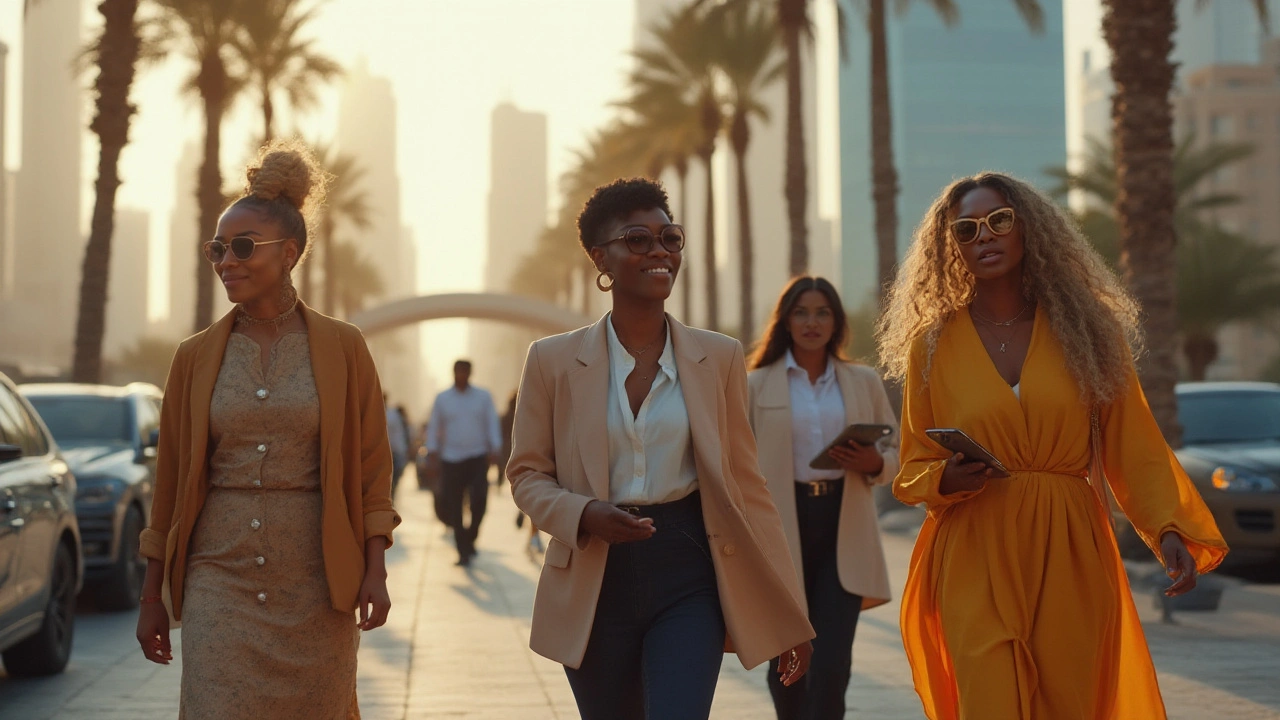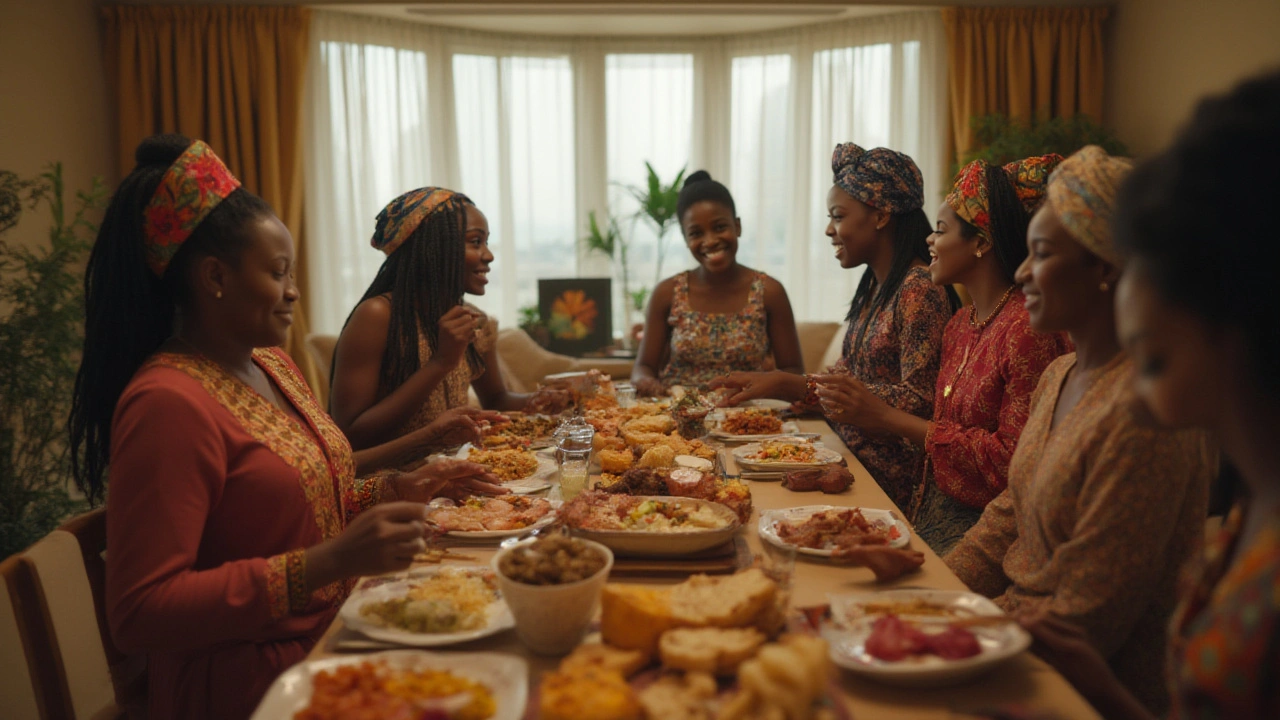African Girls in Dubai: Life, Work, Culture & Connections Revealed

The sound of multiple languages, the swirl of bold colors, laughter echoing down a glittering shopping mall—this is a side of Dubai most people don’t expect. What’s behind all this vibrance? African girls who’ve made this desert city their new home. There’s much more to the story than meets the eye—real ambitions, hidden challenges, close-knit friendships, and the kind of hustle that truly defines living in a place as gleaming (and sometimes overwhelming) as Dubai.
Life in the Desert: How African Girls Adapt and Thrive in Dubai
Landing in Dubai from Lagos, Nairobi, Accra, or Addis Ababa drops you in a world that mixes futuristic cityscapes, strict rules, and endless social possibilities. African girls in Dubai come for study, work, or adventure—each with stories full of ambition, but also the reality of being far from home. The first challenge? The heat. With temperatures soaring over 40°C (104°F) in summer, even short walks feel like a sauna session. But you’ll see African girls in hijabs, afros, or business suits, figuring out hacks like timing their outings, or trusting Uber over crowded buses. High-rise apartments are the norm, and while some live with fellow Africans, plenty choose international roommates to mix things up.
You’d expect the job market might be hostile for outsiders, but here’s the twist: African girls find jobs across Dubai’s huge hospitality, retail, and business sectors. English fluency is a must—and French, Amharic, or Swahili open even more doors in hotels and tourism. According to a 2024 Gulf News survey, Africans make up about 9% of Dubai’s foreign workforce. Some work in Dubai’s poshest hotels, others run lively beauty salons in Deira or start small import businesses. You’ll spot African brands popping up in malls, side by side with French cheese shops or Korean bubble tea bars.
The Emirati culture is strict on public behavior—a huge shift from back home for many Africans used to looser rules. There’s no public drinking, showing affection can be risky, and ladies are expected to dress modestly in government spaces. It might feel uncomfortable at first, but seasoned African expats say it’s easy to adjust: don flowing maxi skirts, save the crop tops for expat parties, and learn a little Arabic (even just a simple "shukran"—thanks—gets smiles). The melting pot vibe makes it possible to celebrate African Independence Days or Eid with Eritreans, Ghanaians, and Moroccans all in the same night.
Working, Studying, and Hustling: Real Career Paths for African Women
The hustle in Dubai is real, but so are the rewards. African girls often arrive for two reasons: jobs they can’t find back home or a degree from one of Dubai’s dozens of international universities. The biggest surprise? Not all work is low-paid. There are African women engineering skyscraper designs, running food startups that deliver jollof rice to your office, or teaching STEM to Emirati kids. Most start off working long hours in hospitality, admin, or sales—the classic Dubai entry gigs. Data from Dubai Chamber of Commerce (2023) estimates up to 67,000 African women are employed across hospitality, retail, and personal services (beauty, fitness…you name it), with growing numbers in finance, design, and tech.
If you’re planning to come for work, here are a few ground rules most African girls talk about:
- Sort your visa through a legit agency. Dubai’s strict on visas, and scams happen. Never pay someone promising a job who can’t show you a UAE Ministry of Labor number.
- Know your rights—read your contract inside out. Make sure it includes medical insurance (mandatory for all workers), days off, and housing info if it’s provided.
- Don’t accept your passport being held by employers. The UAE’s labor laws are clear: you keep your passport.
- Networking is gold. Join WhatsApp and Facebook expat groups (Nairobi Girls in Dubai, African Mums UAE), and show up for meet-ups. Real jobs pop up in these circles long before they hit job boards.
The student scene is just as lively. African girls make up big numbers at universities like Canadian University Dubai and Heriot-Watt, with Nigerians and Kenyans being the largest groups. Scholarships are rare but not impossible—a 2023 survey by Times Higher Education points to nearly 5% of Dubai’s international scholarship holders being African women. Balancing studies with part-time jobs—barista shifts, tutoring, event promo—is almost a rite of passage. And let’s not forget: those degrees open doors not just in the Middle East, but back home and across Europe.
If you want to get into business, Dubai’s startup costs are pricey, but some African girls are breaking through the red tape with small food delivery, African fashion shops, and beauty salons. Keep in mind: registering any business in Dubai means sponsorship, lots of paperwork, and—more than anything—a ton of determination.

Culture, Community, and Connection: African Heritage in a Glam City
Dubai is the kind of place where Nigerian afrobeats pump from a yacht party, while Ethiopian coffee ceremonies happen in a tucked-away café. But staying connected to African culture is vital for girls who call Dubai home. There are at least 20 registered African community clubs scattered from Jumeirah to Deira, covering everything from women’s networking to cultural festivals, charity drives, and epic Ghanaian street food parties. You’ll find Kenyan churches, South African sundowner nights, and even Ethiopian jazz brunches on Fridays.
If you’re craving home flavor, Dubai delivers. Legit jollof rice joints, Congolese hair stylists, and Somali groceries are easy finds, especially in Al Rigga, International City, or the famous African Mall. These aren’t just businesses—they’re lifelines for new arrivals missing home-cooked beef stew or the right hair braids. It’s not all about food: there’s real solidarity around helping each other adjust. Older girls walk newbies through UAE law (don’t even think about overstaying your visa), apartment hunting, and how to find volunteer gigs and cultural events.
Here’s a quick guide to the most common African communities you’ll spot in Dubai, based on 2025 consular reports:
| Community | Main Areas | Key Events |
|---|---|---|
| Nigerian | Deira, Al Barsha | Independence Day bash, Naija Night (monthly) |
| Kenyan | Al Quoz, Jumeirah | Jamhuri Day, Masai Market pop-ups |
| Ethiopian | International City, Deira | Timket celebration, coffee ceremonies |
| Ghanaian | Al Rigga, Bur Dubai | Chop Bar Sundays, Ghana Independence Festival |
| South African | Marina, JLT | Braai Days, Springbok Rugby events |
So why do these connections matter? Dubai can be lonely. Having a “sisterhood” means someone to laugh with, share tips for handling homesickness, or recommend the best secondhand furniture for your flat. These groups are usually a WhatsApp invite away—don’t be shy to ask around, even at church or in the hair salon.
Challenges, Truths, and Street-Smart Tips for African Girls in Dubai
Dubai might look like a playground, but real talk: African girls face plenty of hard stuff. Money is tighter than the skyline makes you think—a lot of wages go to rent, and sending money home is top priority for many. According to WorldRemit’s 2024 stats, African expats in the UAE send home more than $482 million a year, with women making up 38% of the senders. Rent eats up almost half a typical salary, so it’s common for girls to share small flats with two, three, or even four housemates. Safety is generally solid—Dubai is famous for low street crime—but always keep your wits about you, especially with late-night taxis or pushy strangers.
There’s a dark side, too. Some African girls get caught in dodgy jobs—especially in domestic work or tourist services—where exploitation or withheld pay can happen. Always check job offers (the UAE Ministry of Human Resources lets you search employer records online) and never work on a tourist visa. There are legal aid charities for anyone who runs into trouble—like the African Women’s Network Dubai, who have volunteer hotlines in English, French, Amharic, and Swahili.
Being different stands out, no question. You might get stares or even comments. Most girls brush it off, but there are real stories about racism or assumptions—sometimes in fancy shops, sometimes among other expats. A lot of girls keep a tight circle for support and say self-confidence and humor are the best armor.
The dating scene in Dubai is its own beast. There are cool parties, fancy Tinder bios, and spontaneous coffee meetups, but public romance lands you big trouble with the law. Most African girls recommend keeping it super private: group hangouts, house parties, and knowing local rules before making a move. Intercultural dating isn’t rare, but it can be tricky with so many cultures mixing. For those who want social adventures, join open mic nights, art shows, or fitness groups instead—it’s far safer (and just as fun).
If you made it this far, you probably get that living as an African girl in Dubai takes both grit and grace. Stay street-smart, never accept job offers that seem too good, and lean hard into your community. Whenever someone asks, “What’s it really like for African girls in Dubai?”—the answer is always: it’s everything. Shimmering, tough, surprising, sometimes lonely, never dull—and always worth the adventure.